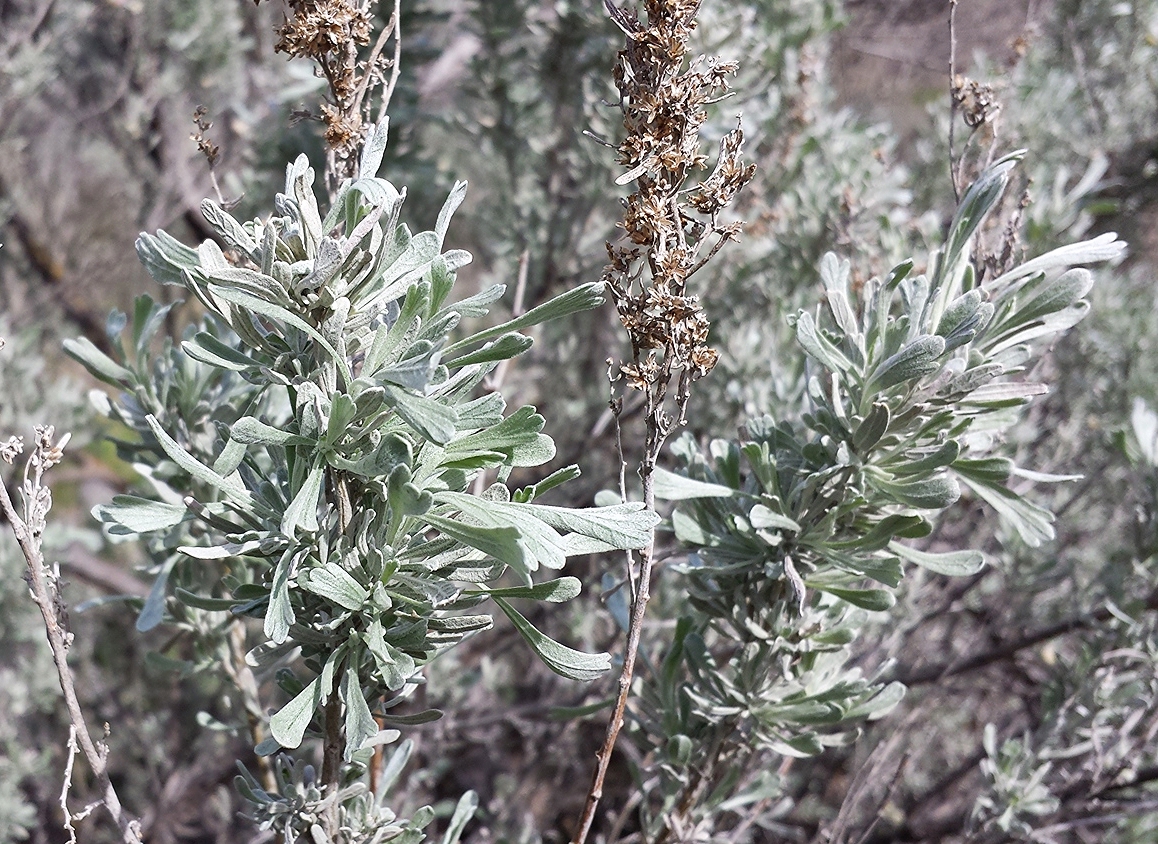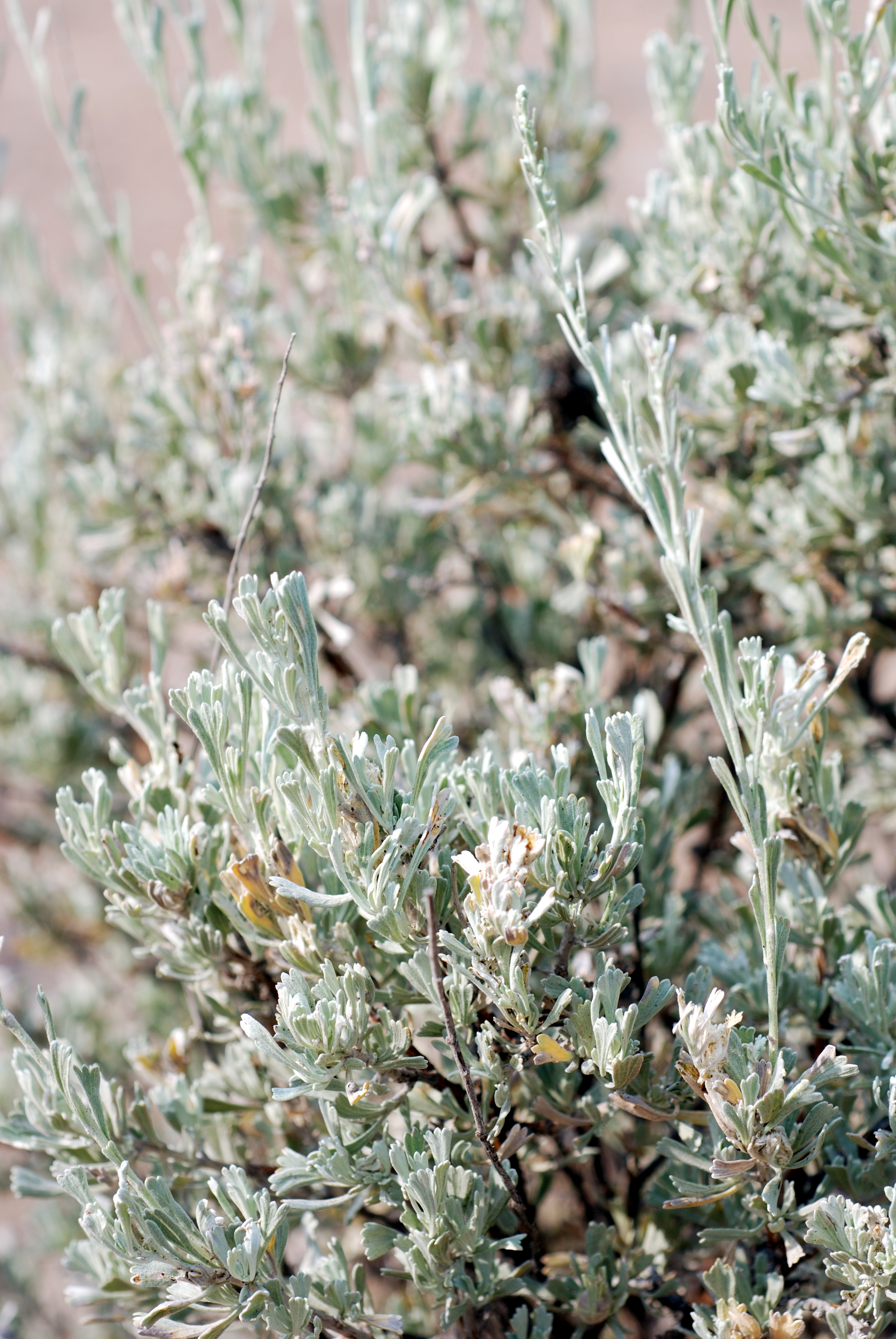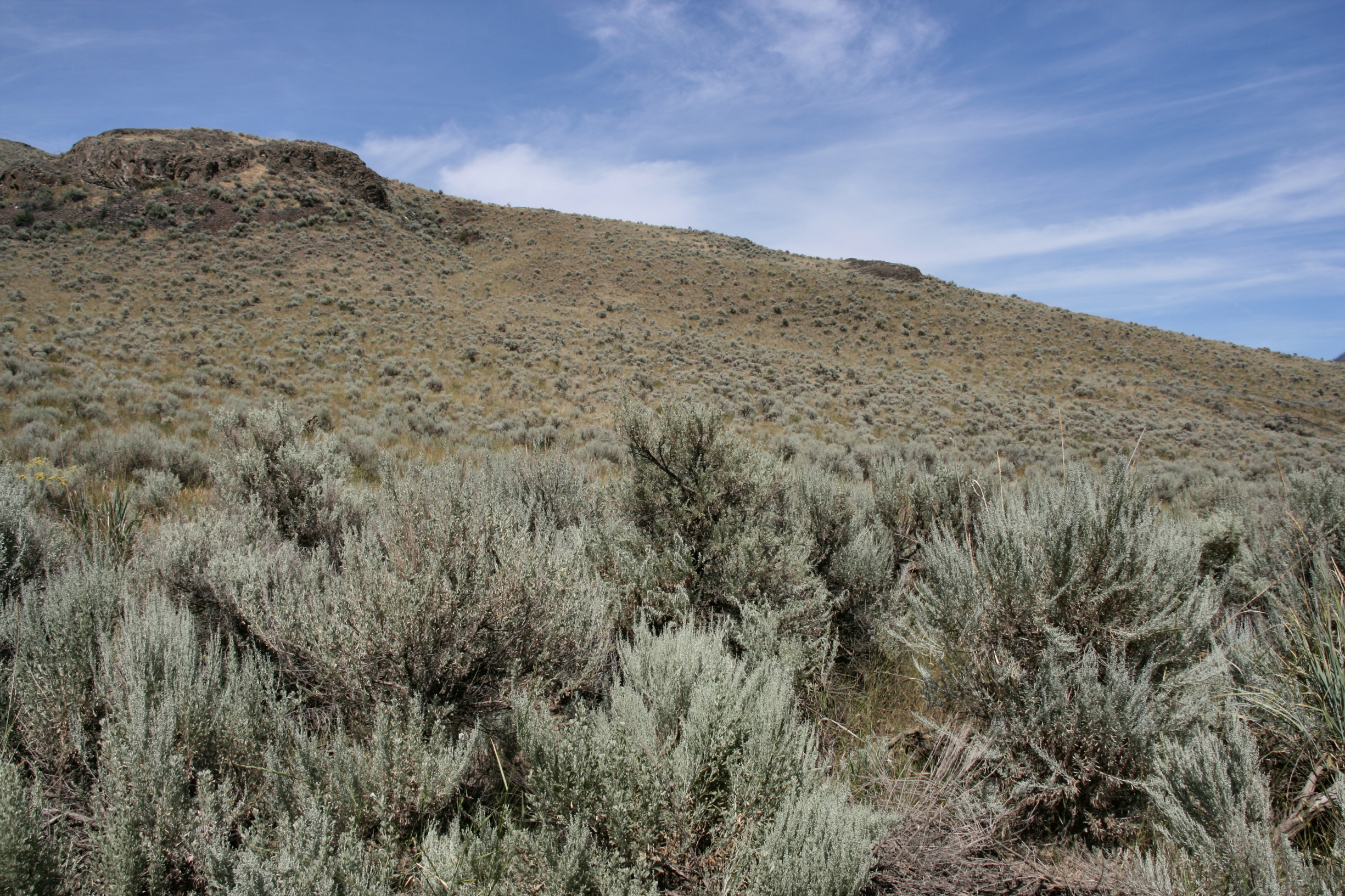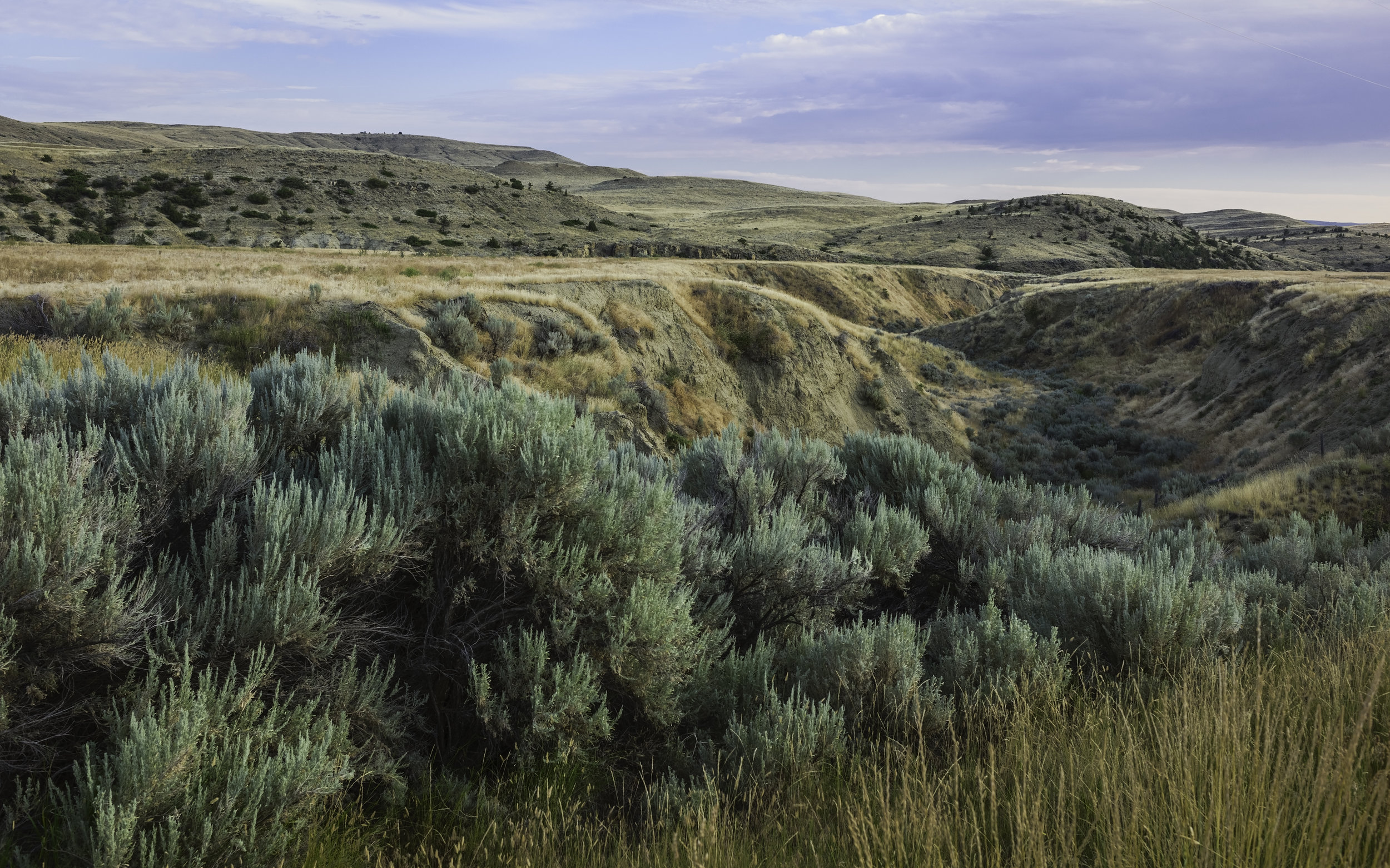Artemisia tridentata ssp. tridentata (Basin big sagebrush)
Evergreen shrub with gray-green leaves commonly 3-7 ft. tall, is the tallest of the big sagebrush subspecies and may reach up to 13 ft. tall; flowering August to October. Prefers deep, fertile, well-drained soils from valley bottoms and plains, to the foothills and upper timberline; up to 7,000 ft. elevation. Occurs on slightly more mesic sites than the other subspecies, often indicating a high water table or deep soil moisture. Intolerant of wildfire; does not resprout. Least palatable browse of all the subspecies though heavily used during winter months by various types of ungulates and other wildlife. Eaten by sage-grouse when the other more preferred subspecies are absent. Provides valuable cover for wildlife, including sage-grouse and pygmy rabbits. Caterpillar host of the Hera buckmoth.
DISTRIBUTION / ADAPTATION
INFORMATION & ATTRIBUTES
Family: Asteraceae
Duration: Perennial
Growth Habit: Shrub
Native Status: Native
Growth Form: Multiple stem
Mature Height: 2-15 ft.
Bloom Color: Green
Fruit/Seed Color: White
Bloom Period: Late Summer
Annual Precipitation: 6-35 in.
Drought Tolerance: High
Shade Tolerance: Low
Elevation: up to 7,000 ft.
Fire Resistance: No
Fire Tolerance: Low
Nitrogen fixation: None
SOIL ADAPTATION
Coarse Texture: Yes
Medium Texture: Yes
Fine Texture: Yes
Salinity Tolerance: Low
CaCO3 Tolerance: High
pH Range: 6.5-8.5
SEEDING NOTES
Seeds per Pound: 2,358,000
Seeding Rate: PLS lbs/acre
Season: Fall/Winter
Days to Germination:
VARIETIES & LOCAL ACCESSIONS
None





